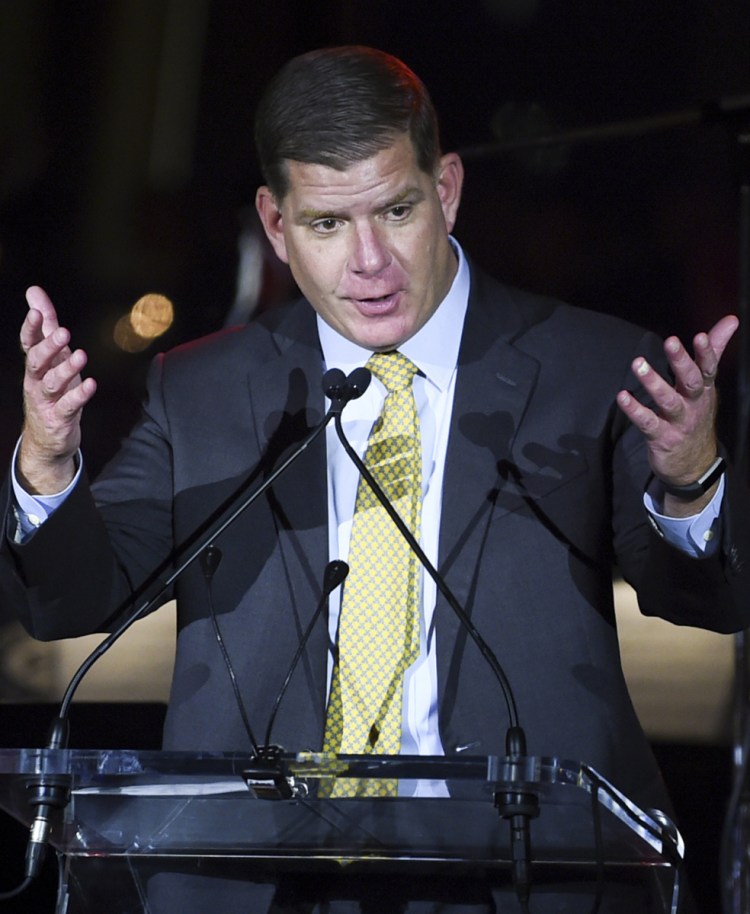BOSTON — Boston Mayor Marty Walsh unveiled a plan Wednesday to transform the city’s waterfront to protect the low-lying, extensively landfilled city from climate change and rising sea levels.
The Democratic mayor’s “Resilient Boston Harbor” plan calls for the creation of 67 acres of new open space and the restoration of 122 acres of tidal areas and parklands to serve as natural buffers during major floods.
The plan also proposes elevating flood-prone areas along the city’s 47 miles of shoreline, such as Main Street in historic Charlestown and downtown’s popular Harborwalk.
Walsh said the potential damage from rising sea levels would far outweigh the cost of the proposed investments, which The Boston Globe reports could approach $1 billion over the next decades.
A 2016 city report projected that sea levels around Boston could rise 36 inches by 2070, affecting some 90,000 residents, 12,000 buildings and potentially causing more than $14 billion in economic losses.
Walsh urged the local business community to step up as he unveiled the plan at a Greater Boston Chamber of Commerce meeting.
“Wherever you are in Boston, the ability of your employees to get to work and the ability of your suppliers to make deliveries are at risk,” Walsh said in his prepared remarks.
Local environmental group the Charles River Watershed Association said Walsh’s proposal was “commendable” but that other steps need to be considered, such as more stringent requirements on developers to design their buildings with climate change and rising seas in mind.
The Trustees of Reservations, another local conservation group, applauded the mayor’s promise to devote 10 percent of the city’s annual capital budget to climate change projects.
Walsh said the city is also seeking federal support for some of the projects, including $10 million from the Federal Emergency Management Agency for flood mitigation measures in the rapidly developing Seaport District that’s home to General Electric, Reebok and other companies.
And he said the city has committed about $11 million from the sale of a parking garage to expand the Emerald Necklace, a series of connected parklands designed by the landscape architect Frederick Law Olmsted.
But Walsh’s plan deliberately doesn’t include much-discussed plans for a massive barrier across Boston Harbor that could cost $12 billion and take 30 years to build.
“Instead of walling off our harbor, we need to work with it,” he said. “Shoreline projects are more feasible and more effective ways to increase our city’s resilience.”
Send questions/comments to the editors.


